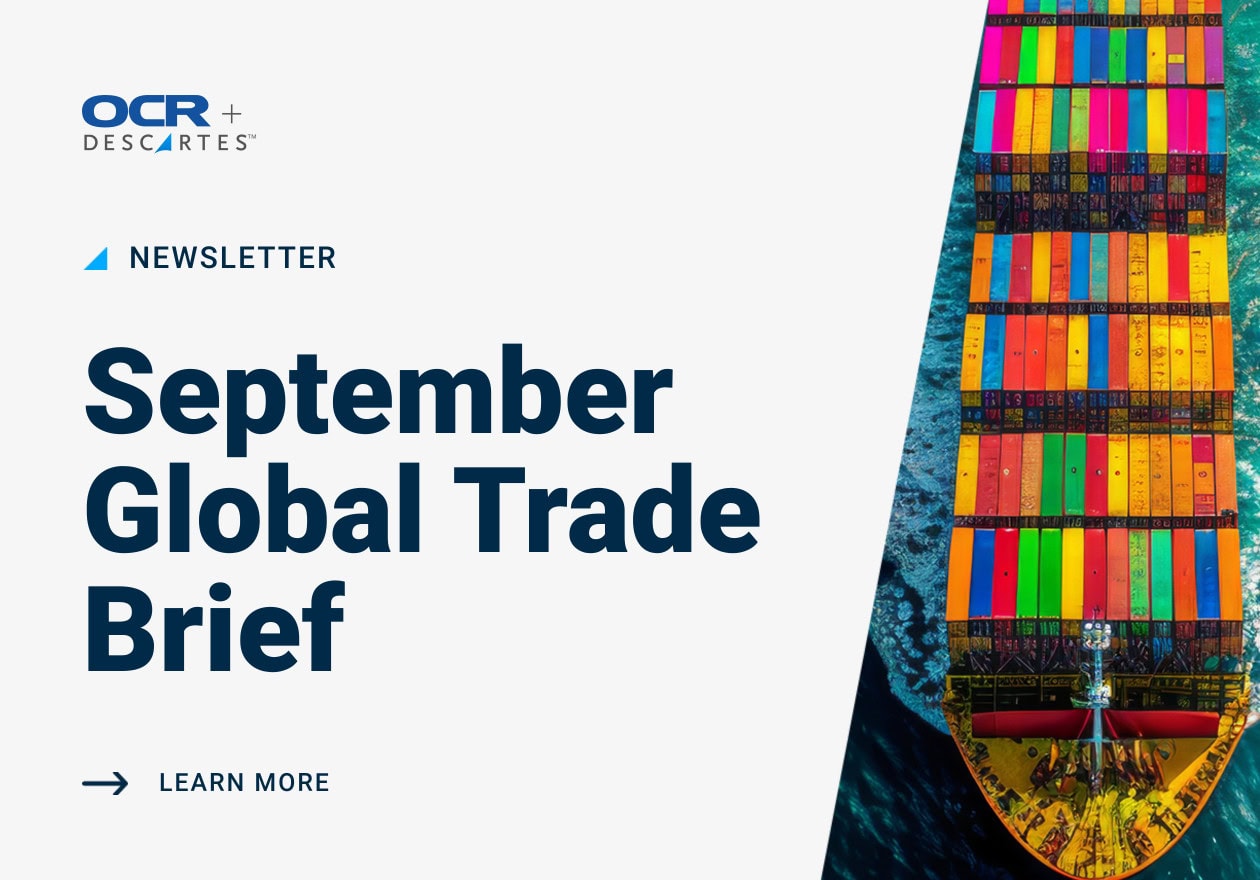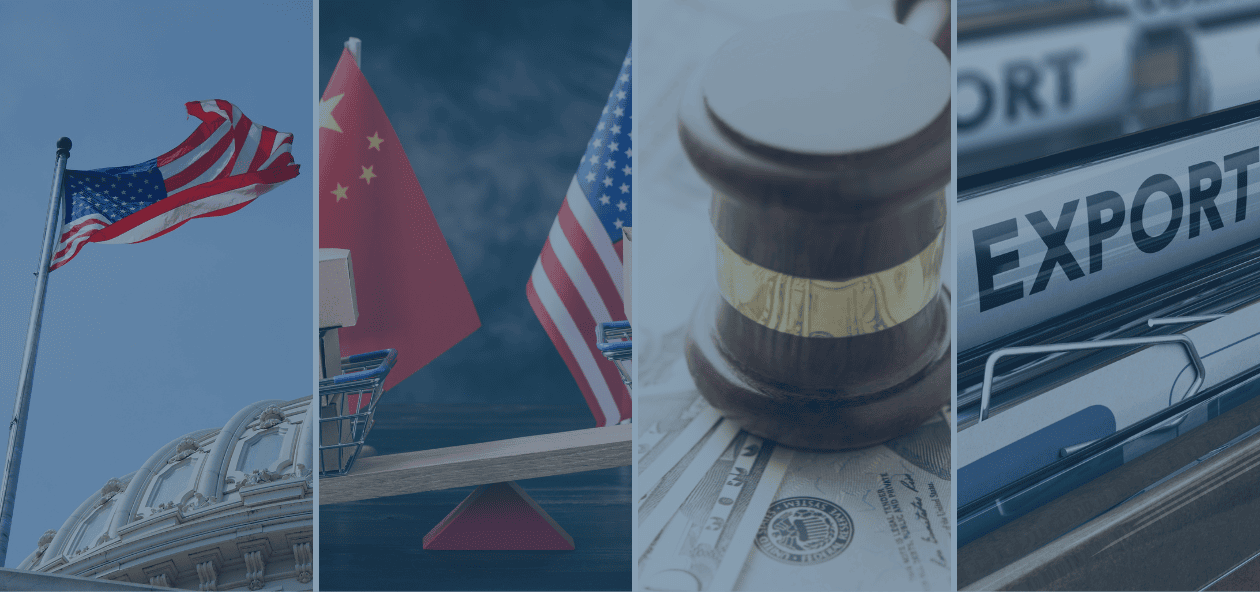End Use and End User Control Expanded
BIS has issued an interim final rule to implement the provisions of the Export Control Reform Act of 2018 by imposing additional license requirements under the EAR for exports, reexports, and transfers (in-country), as well as specific activities of U.S. persons, in connection with certain military-intelligence end uses and end-users; clarifying those license requirements under the EAR for specific activities of U.S. persons apply even when the items at issue are not subject to the EAR; establishing restrictions on transactions intended to circumvent license requirements for listed entities, and expanding the scope of activities subject to chemical and biological weapons and rocket systems and unmanned aerial vehicles end-use controls.
Specifically, BIS is revising sections 730.5 and 734.5(a) of the EAR to reflect the expanded scope of U.S. person activities subject to the EAR which include activities supporting certain military- intelligence end uses and end-users.
Furthermore, BIS is revising Sec. 744.6 to provide an illustrative list of the types of activities unrelated to the shipment, transmission, or transfer (in-country) of items that are subject to a license requirement when undertaken by U.S. persons in connection with the end uses or end users enumerated in that section. This list is derived from the list of “Specific Unlawful Acts” set forth in section 1760(a)(2)(E) of ECRA (50 U.S.C. 4819(a)(2)(E)).
BIS is also revising Sec. 744.6 to impose a license requirement on such activities when a U.S. person knows the activity(ies) “will support,” as opposed to “will directly assist,” any of the end uses or end users listed in that section of the EAR.
This rule is effective on March 16, 2021. Interested persons must submit their comments on the interim final rule no later than March 1, 2021.
Hong Kong related Final Rule
OFAC released for publication in the Federal Register a final rule implementing Hong Kong-related sanctions regulations. OFAC reported that it is issuing this final rule to implement Hong Kong-related sanctions regulations pursuant to Executive Order 13936 (July 2020) that concluded that “Hong Kong is no longer sufficiently autonomous to justify differential treatment in relation to the People’s Republic of China” under U.S. laws and provisions. The regulations are being published in abbreviated form for the purpose of providing immediate guidance. OFAC stated that it intends to supplement these regulations with a more comprehensive set of regulations that may include additional interpretive and definitional guidance, general licenses, and statements of licensing policy.
U.S. detains cotton and tomato products; Uyghur forced labor in China
CBP issued a “withhold release order” (WRO) against cotton products and tomato products produced in Xinjiang, based on information that reasonably indicates the use of detainee or prison labor and situations of forced labor. CBP identified certain forced labor indicators through the course of its investigation. The WRO directs CBP personnel at all U.S. ports of entry to detain cotton products and tomato products grown or produced by entities operating in Xinjiang. These products include apparel, textiles, tomato seeds, canned tomatoes, tomato sauce, and other goods made with cotton and tomatoes.
Importers are responsible for confirming the products they are attempting to import do not exploit forced labor at any point in their supply chain, including the production or harvesting of the raw material.
CBP announced that effective January 13, 2021, it will detain, at all U.S. ports of entry, cotton products, and tomato products produced in China’s Xinjiang Uyghur Autonomous Region.
Tariffs on steel imports did not violate Section 232
Universal Steel Products, Inc. v. United States, Slip Op. No. 21-12 (CIT February 4, 2021)
The U.S. Court of International Trade issued an order finding that a presidential proclamation imposing a 25% tariff on imports of steel articles from various countries did not violate Section 232 of the Trade Expansion Act of 1962, and granted the government’s motion for judgment on the pleadings.
Then-President Trump from March 2018 to May 2019 issued a series of proclamations, the first of which was Proclamation 9705 that imposed a 25% tariff on imports of steel articles from certain countries. The president declared in Proclamation 9705 that the tariffs were being imposed as a national security measure.
U.S. corporations that were importers of steel articles challenged the proclamation and the tariffs on steel imports as violating the statute (in part because the proclamations did not set the duration of the tariffs). The U.S. trade court, however, concluded that Proclamation 9705 (and its subsequent modifications) did not violate Section 232 and granted the government’s motion to dismiss.
USMCA rules of origin for automobiles
The trade agreement between the United States, Mexico USMCA, includes new rules of origin to claim preferential treatment for automotive goods.
These rules of origin include higher regional value content thresholds, mandatory requirements to produce core parts in the region, mandatory steel and aluminum purchasing requirements, and a labor value content requirement.
The USMCA provides for “alternative staging regimes” (ASRs) for passenger vehicles or light trucks and thus permits a longer period of transition so that that future production is able to comply with the new rules. Vehicles covered by an ASR are eligible for preferential tariff treatment based on the rules of origin.
The following companies have been approved by Canada and Mexico to import certain vehicles on the basis of an ASR.
- Cooperation Manufacturing Plant Aguascalientes (COMPAS, for certain Mercedes-Benz models)
- Fiat Chrysler Automobiles
- Ford Motor Company
- Honda Motor Company
- Hyundai Motor Company
- Kia Motors Manufacturing Georgia
- Kia Motors Mexico
- Nissan Motor Company
- Tesla, Inc.
- Toyota Motor Corporation
- Volkswagen
- Volvo Cars
BIS Imposes Administrative Penalties for submission of false or misleading export information involving Russia
Facts: BIS alleged that Mr. Demurjian and CIS Project, a company that Demurjian owned and operated, caused, aided, or abetted seven violations of the Export Administration Regulations (EAR). These seven alleged violations were in connection with the submission of false or misleading information of the values of telecommunications networking equipment controlled for national security, encryption, or anti-terrorism reasons and destined for Russia.
The BIS settlement resolved allegations that on six occasions between December 2014 and August 2015, Demurjian and CIS Project prepared invoices on CIS Project letterhead that significantly undervalued the items, and provided these invoices to a freight forwarder. The freight forwarder subsequently filed Electronic Export Information (EEI) containing the false value information in the Automated Export System for each of the shipments. The BIS settlement also resolved allegations that, in February 2015, Demurjian and CIS Project generated and provided to the freight forwarder an invoice on CIS Project letterhead that falsely undervalued the items so that the stated value did not exceed $2,500, and thus did not appear to trigger an EEI filing requirement.
Conclusion: To settle this matter, Mr. Demurjian agreed to a stated penalty of $540,000, of which $480,000 will be suspended for a two-year probationary period, and a two year suspended denial of export privileges under the EAR.
U.S. export controls for military end-use in China, Russia, Venezuela
BIS of the U.S. Department of Commerce updated a set of “frequently asked questions” (FAQs) concerning the expansion of export, reexport, and transfer (in-country) controls for military end-uses or military end-users in China, Russia, or Venezuela.
Commerce last week announced expanded license requirements for exports, reexports, and transfers (in-country) to military-intelligence end-uses and end-users in China, Russia, and Venezuela (beyond those enumerated items subject to existing military end-use and end-user (MEU) controls) to apply to all items subject to the Export Administration Regulations (EAR).
The updated FAQs provide further information on the following:
- Changes to section 744.21of the EAR
- Military end-users
- License review policy
- Export control classification numbers (ECCNs) covered by section 744.21
- Electronic export information (EEI) filing requirement in the automated export system (AES)
UK exports under U.S. tariff-rate quotas allocated to the EU Member States
USTR today released for publication in the Federal Register a notice advising that the United Kingdom (UK) in 2021 continues to be eligible to export under U.S. tariff-rate quotas allocated to the EU Member States.
As explained in the USTR notice, the UK and EU in October 2019 agreed to the withdrawal of the UK from the European Union (the “Brexit” agreement). As part of the withdrawal agreement, the UK and EU agreed to a transition period, which ended on December 31, 2020.
The USTR release announces that for 2021, the UK will continue to be eligible to export under U.S. tariff-rate quotas allocated to the EU Member States.
BIS Extends Classification of Software Specially Designed to Automate the Analysis of Geospatial Imagery
The U.S. Department of Commerce’s Bureau of Industry and Security (BIS) amended the Export Administration Regulations (EAR) to add Software Specially Designed to Automate the Analysis of Geospatial Imagery to the 0Y521 Temporary Export Control Classification Numbers (ECCN) Series as 0D521. In this action, BIS extends that status for a year pursuant to the 0Y521 series extension procedures. On January 6, 2020, BIS amended the EAR with an interim final rule to add Software Specially Designed to Automate the Analysis of Geospatial Imagery to the 0Y521 Temporary Export Control Classification Numbers (ECCN) Series as 0D521. More specifically, the software was described as Geospatial imagery “software” “specially designed” for training a Deep Convolutional Neural Network to automate the analysis of geospatial imagery and point clouds. BIS established the ECCN 0Y521 series in a final rule published 72 Fed. Reg. 22191 (April 13, 2012) (hereinafter “April 13 rule”) to identify items that warrant control on the Commerce Control List (CCL) but are not yet identified in an existing ECCN. Items in the 0Y521 series of ECCNs are added upon a determination by the Department of Commerce, with the concurrence of the Departments of Defense and State, and other agencies as appropriate, that the items warrant control for export because the items may provide a significant military or intelligence advantage to the United States or because foreign policy reasons justify control. The ECCN 0Y521 series is a temporary holding classification.
UK Government Publishes Various Post-Brexit Export Control and Sanctions Guidance
The U.K. Government’s Export Control Joint Unit (ECJU) has published numerous post-Brexit export control guidance documents. They include the following:
- EU General Export Authorizations (EU GEAs)
- Applying for export licenses using SPIRE
- UK arms embargo on mainland China and Hong
- Kong
Clarifications to the Scope of Export Control Classification Number 1C991 To Reflect Decisions Adopted at the June 2019 Australia Group Plenary Meeting
The U.S. Department of Commerce’s Bureau of Industry and Security (BIS) has clarified the scope of the export controls that apply to certain vaccines and medical products, consistent with the release (i.e., exclusion) notes contained in the Australia Group (AG) “Human and Animal Pathogens and Toxins for Export Control” common control list. Specifically, this rule amends Export Control Classification Number (ECCN) 1C991 on the Commerce Control List (CCL) to indicate that it includes vaccines containing, or designed for use against, any of the items identified in ECCN 1C351, 1C353, or 1C354. Prior to the effective date of this final rule, ECCN 1C991 indicated that it controlled vaccines “against” such items, but was not specific about whether all vaccines “containing” such items were controlled, irrespective of whether the vaccines were designed for use “against” such items. This rule also expands the scope of medical products controlled under ECCN 1C991 to include those containing genetically modified organisms and genetic elements described in ECCN 1C353.a.3. In addition, this rule clarifies the definition of ‘immunotoxin’ that appears in ECCN 1C351 and ECCN 1C991 and removes the definition of ‘subunit’ from ECCN 1C351. Finally, this rule renumbers ECCN 1C991.c and .d by listing medical products that are subject to chemical/biological (CB) controls, as well as anti-terrorism (AT) controls, under ECCN 1C991.c and listing medical products that are subject only to AT controls under ECCN 1C991.d. A conforming amendment is made to § 742.2(a)(3) of the EAR to reflect this change in paragraph sequencing.
Additional customs duties on imports from France suspended, digital services tax investigation
The Office of the U.S. Trade Representative announced a suspension of the additional customs duties on certain products imported into the United States from France. The USTR notice suspends “until further notice” the additional customs duties. The additional U.S. tariffs were announced in July 2020 in response to a Section 301 investigation of France’s digital services tax and were scheduled to be effective January 6, 2021.
According to a related USTR release (January 7, 2021), the additional customs duties or tariffs have been suspended in light of an ongoing investigation of similar digital services taxes adopted or under consideration in 10 other jurisdictions: Austria, Brazil, the Czech Republic, the European Union, India, Indonesia, Italy, Spain, Turkey, and the United Kingdom. The suspension of the tariff action regarding France’s digital services tax investigation is, according to the USTR, intended to promote a coordinated response in all ongoing digital services tax investigations.
U.S. findings from investigations of digital services taxes in India, Italy, Turkey
The Office of the U.S. Trade Representative (USTR) on January 6, 2021, issued reports and findings from the Section 301 investigations of digital services taxes adopted by India, Italy, and Turkey.
According to the USTR release, each of these digital services taxes discriminates against U.S. companies, is inconsistent with prevailing principles of international taxation, and burdens or restricts U.S. commerce and thus is actionable under Section 301.
The Section 301 investigations of the digital services taxes adopted by India, Italy, and Turkey were initiated in June 2020—along with investigations of digital services taxes adopted or under consideration by Austria, Brazil, the Czech Republic, the European Union, Indonesia, Spain, and the United Kingdom.
The findings on each of the digital services tax regimes in India, Italy, and Turkey are supported by “comprehensive reports” and notices that are intended to be published in the Federal Register.
Source:
Highlights of the free trade agreement between UK and EU
A free trade agreement between the UK and the EU came into force on 1 January 2021, following the end of the “Brexit” transition period.
The free trade agreement includes the following customs and tax implications for businesses.
- Customs declarations on either side of the border will be required, and businesses will have to put in place further preparations, including having registrations and data to support these declarations.
- The ability to import and export post-transition would be compromised. Contracts must be in place because capacity in the customs clearance market is constrained.
- Customs duty and quota-free access to each other’s markets, but only for goods that meet specific rules of origin. It is not necessarily the case that all goods moving across the UK-EU border will be duty-free. Control mechanisms will be needed to assess whether the rules of origin have been met.
- The UK no longer has access to EU directives, leading to additional taxation on certain transactions, and no longer has access to the arbitration convention governing tax disputes.
- The agreement contains provisions for the coordination of social security. UK nationals traveling, working or living in the EU (and vice versa) will retain entitlements to some benefits. Cross-border workers and employers will only be liable to pay social security contributions in one state at a time.
- A broad range of legislation and treaty law ceases to apply where there are provisions governing EU established entities.
EU removes UK territories from registered export (REX) system dates of application
The REX system allows for certification of origin of goods based on self-certification. The origin of goods is declared by economic operators themselves by means of statements on the origin. To be entitled to make out a statement on origin, an economic operator must be registered in a database maintained by the applicable competent authorities—the REX system.
The REX system is used to designate the system of certification of origin as a whole, and not only the underlying IT system which is used for the registration of exporters. At present, the REX system is used by EU exporters in the context of some free trade agreements. The REX IT system has been developed by the European Commission and is available to the EU Member States and certain other countries.
The European Commission (EC) announced that the UK “overseas countries and territories” (OCTs) have been removed from the table providing the dates of application of the “registered export” (REX) system by the different OCTs. This follows the transition period for “Brexit” that ended on 31 December 2020.



